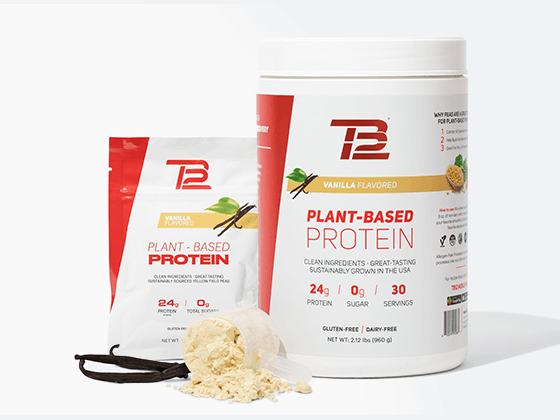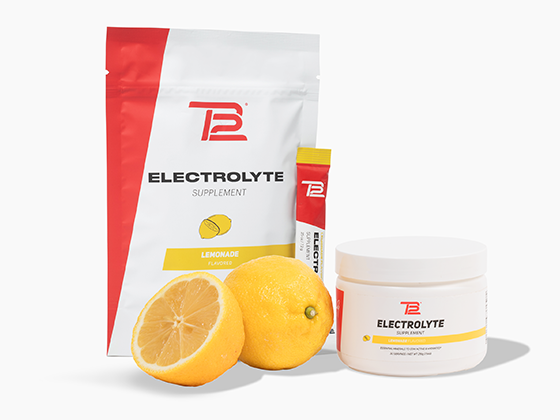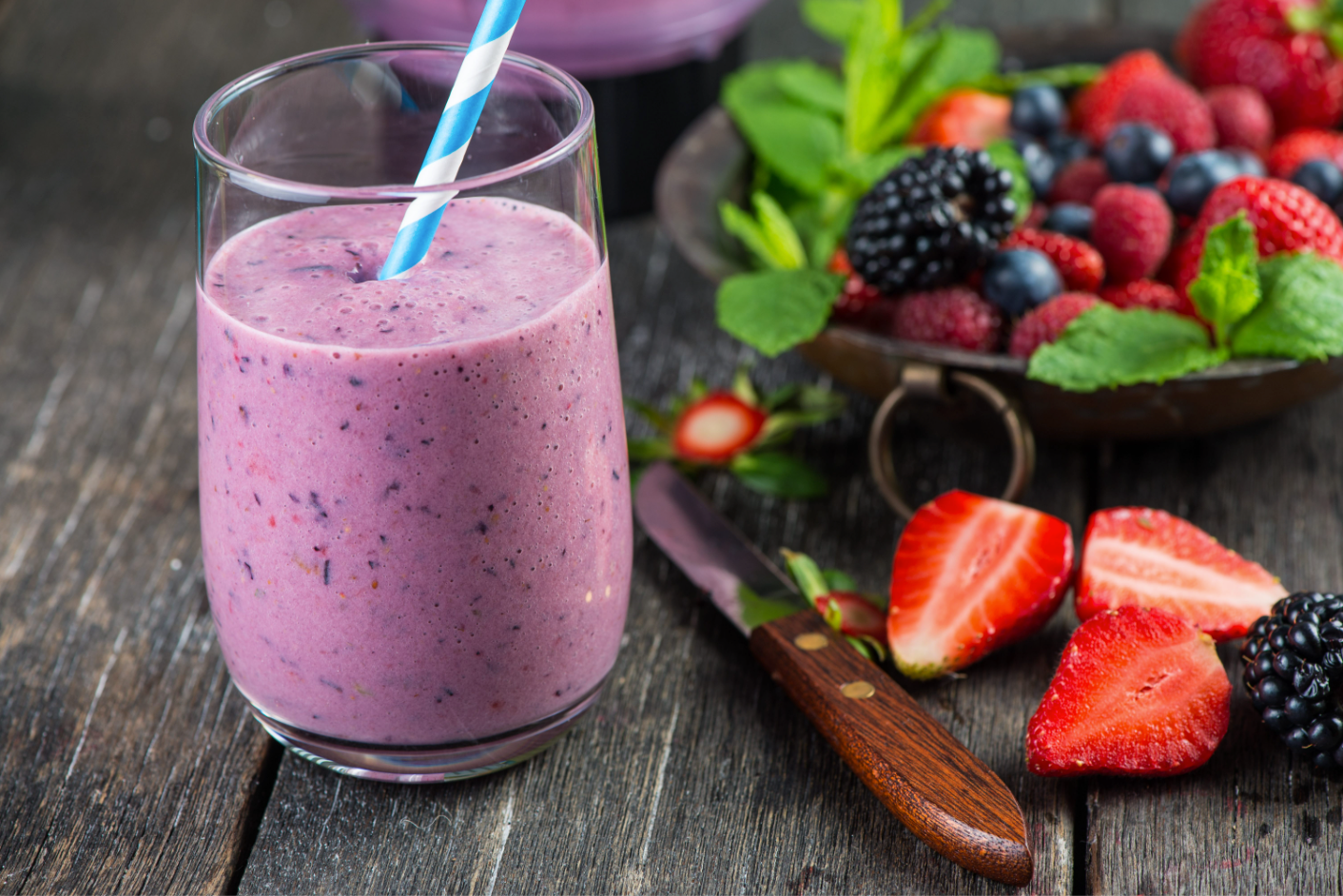Introduction
At TB12, we believe that optimal hydration is essential for achieving peak performance and maintaining overall wellness. While drinking water is crucial, there is also great power in hydrating foods that can support your body's needs. These are our top-10 favorite foods to help keep you naturally hydrated and performing your best.
Cucumber (96% Water Content):
Cucumbers are not only hydrating but also incredibly refreshing. With a remarkable 96% water content, they are an excellent choice for replenishing fluids and maintaining electrolyte balance. Additionally, cucumbers are rich in vitamins K and C, as well as antioxidants, which promote overall health and recovery. Make cucumbers a staple in your snack routine! [Source: MedicalNewsToday}
Watermelon (92% Water Content):
Indulge in the natural sweetness and hydrating properties of watermelon. With approximately 92% water content, this juicy fruit not only quenches your thirst but also delivers essential vitamins and minerals. Watermelon is a great source of lycopene, a powerful antioxidant known for its heart-protective benefits. Enjoy a slice of watermelon to stay hydrated and nourish your body. [Source: Healthline]
And don’t forget to check out our delicious Watermelon Smoothie Recipe!
Strawberries (91% Water Content):
Tom may not be a big fan of strawberries personally, but these delightful berries boast a water content of about 91% and are bursting with vitamins, fiber, and antioxidants. Add them to your smoothies, salads, or simply enjoy them as a refreshing snack. [Source: NutritionData]
Spinach (91% Water Content):
Spinach is a nutritional powerhouse. With a water content of approximately 91%, spinach provides optimal hydration while offering vitamins A, C, and K, as well as iron and fiber. Include this leafy green in your meals - adding to salads, bowls, and sandwiches - to promote hydration and supplement a plant-rich diet. [Source: USDA FoodData Central]
Yogurt (85% Water Content):
While we typically recommend avoiding dairy, it is important to acknowledge high-quality hydration sources. Yogurt, with its 85% water content, is not only hydrating but also a rich source of probiotics. It provides essential nutrients such as calcium, protein, and B vitamins. Opt for plain, low-fat yogurt to maximize hydration benefits while avoiding added sugars. [Source: Nutrients]
Pineapple (87% Water Content):
Embrace the tropical goodness of pineapple as a hydrating snack. With an approximate water content of 87%, pineapple helps quench your thirst while providing bromelain, an enzyme that aids digestion and reduces inflammation. Savor the flavor of pineapple while nourishing your body with essential hydration. [Source: FoodData Central]
Bell Peppers (92% Water Content):
Bell peppers are a great addition to your hydrating diet plan. With a high water content of about 92%, bell peppers offer both hydration and vibrant flavor. These crunchy veggies are packed with vitamins A and C, antioxidants, and dietary fiber, making them an excellent choice for supporting your health goals. Incorporate bell peppers into salads, stir-fries, or enjoy them as a hydrating snack to fuel your performance. [Source: NutritionValue]
Celery (95% Water Content):
Celery, a hydrating vegetable with about 95% water content, aligns well with the TB12 Method. Not only does it contribute to your daily hydration needs, but it also offers vital nutrients. Celery is a good source of vitamins A, K, and C, as well as antioxidants and fiber. Incorporate celery sticks with a healthy dip or add it to your salads and stir-fries for a hydrating crunch that supports your wellness journey. [Source: USDA FoodData Central]
Oranges (87% Water Content):
Oranges are another great addition to your hydration routine. With an approximate water content of 87%, oranges offer a refreshing way to stay hydrated. They are rich in vitamin C, which boosts immune function and supports collagen production. Oranges also provide dietary fiber, aiding digestion and promoting overall well-being. Savor the natural sweetness of oranges while fueling your body. [Source: NutritionValue]
Iceberg Lettuce (96% Water Content):
Iceberg lettuce is great for hydration and deserves a place in your diet. With water content of approximately 96%, iceberg lettuce provides a refreshing and crunchy way to stay hydrated. It's low in calories too, making it an excellent choice for those looking to maintain hydration without consuming too many calories. While iceberg lettuce may not offer as many nutrients as other leafy greens, it still provides essential vitamins A and K, as well as dietary fiber. Add some iceberg lettuce to your salads, wraps, or sandwiches for a hydrating and satisfying crunch. [Source: USDA FoodData Central]
Conclusion:
The TB12 Method is about optimizing performance through a holistic approach to health and wellness. Hydration plays a crucial role in maintaining performance levels, and incorporating hydrating foods into your diet is a smart strategy to avoid dehydration as you progress through your day. The 10 hydrating foods we've explored offer both hydration benefits and other essential nutrients.
You can explore the printable TB12 Grocery List here!
Remember, hydration should always be complemented by drinking an adequate amount of water each day. And you can always level-up your water intake with TB12 Electrolytes. Consult with a healthcare professional or registered dietitian to tailor your hydration and nutritional needs to your unique goals.
Unlock your full potential with TB12 and nourish your body with hydrating foods that support optimal performance and overall wellness. Stay hydrated and perform your best!
[Disclaimer: The information in this article is intended for general informational purposes only and does not constitute professional medical or nutritional advice. Always consult with a qualified healthcare professional or registered dietitian before making any changes to your diet.]





